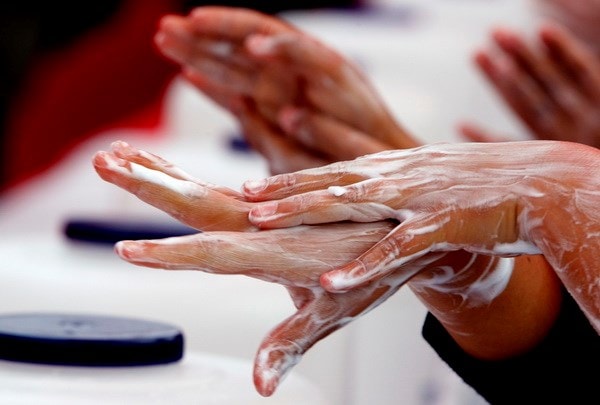The US has decided to ban the sale of antibacterial soap because it is... harmful.
Fear is a powerful marketing tool. Just look at how Listerine’s 1920s ad campaign turned bad breath into an epidemic (and sold tons of mouthwash), or the potassium iodide craze in North America after the 2011 Fukushima nuclear disaster.
Antibacterial soaps and body washes have emerged to combat the fear of disease-causing germs that are everywhere in the home and on the body. Sales of antibacterial soaps skyrocketed during the 2009 H1N1 flu pandemic, and have continued to this day, with brands often advertising their products as scientifically proven to kill germs better than regular soap.
The real problem is that there’s no science to it. For years, researchers have been convincing consumers that soap and water are just as effective as antibacterial products at protecting them from illness. Worse, some antibacterial chemicals are bad for your health. They promote the growth of drug-resistant bacteria, causing health problems by killing off the good bacteria that live on our bodies, and disrupting hormones. And after they’re flushed down the drain, they’re also harmful to animals and plants.
 |
| Photo is for illustration purposes only. (Source: Reuters) |
On September 2, the US Food and Drug Administration (FDA) issued a new rule to protect Americans from these chemicals. Accordingly, from now on, companies are not allowed to market any antibacterial cleaners containing one or more of 19 specific ingredients regulated. The new rule was proposed in 2013, and gives companies one year to adjust their formulas and remove the banned chemicals from their products.
“Consumers may think antibacterial products are more effective at preventing the spread of germs, but we have no scientific evidence that they are any better than plain soap and water,” Dr. Janet Woodcock, director of the FDA's Center for Drug Evaluation and Research, said at a press conference at the center. “In fact, some studies show that antibacterial ingredients do more harm than good in the long run.”
The list of newly banned ingredients in soaps includes two compounds that, according to the FDA, are the most commonly used in antibacterial soaps: triclosan and triclocarban. Triclosan, in particular, has been a headache for public health advocates for years.
According to STAT News, animal studies have shown that the chemical can disrupt hormones in the body, causing health problems ranging from infertility to impaired brain development and cardiovascular function. Additionally, triclosan can be released into sewage sludge used as fertilizer—meaning it can re-enter the food chain via crops.
Perhaps the biggest concern is that the use of these chemicals could increase the number of antibiotic-resistant bacteria. According to an updated FDA consumer guide, “laboratory studies have shown that triclosan has the potential to increase the number of antibiotic-resistant bacteria. Some data suggest that this increase could significantly impact the effectiveness of medical treatments, such as antibiotics.”
The FDA's new rule does not affect other products that contain triclosan, such as cosmetics, shaving creams or some toothpastes.
It also has no effect on hand sanitizers or toilet paper wipes that are commonly used in offices and homes, as well as those used by many people to wipe down bus seats to avoid germs. The FDA said it still needs more information on these products before making a final decision./.
According to VNE
| RELATED NEWS |
|---|
